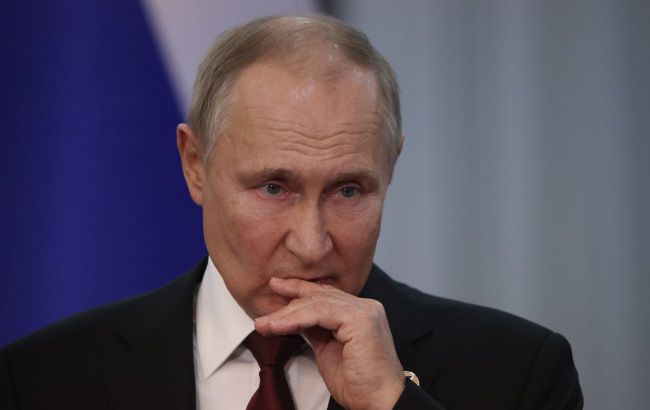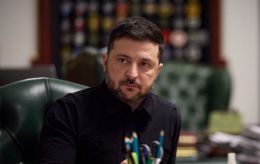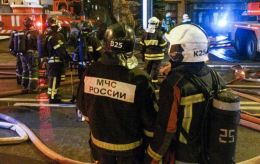Experts explain Putin's weak response to breach of border in Kursk region
 Photo: Russian President Vladimir Putin (Getty Images)
Photo: Russian President Vladimir Putin (Getty Images)
Russian President Vladimir Putin responded to the breach of the border and the fighting in the Kursk region only after a day. This sparked a wave of panic and hysteria on social media. There were even calls for declaring war, but Putin was reluctant to escalate the situation.
This is discussed in the RBC-Ukraine material How 'Kursk breakthrough' could boost Ukraine power for negotiations.
According to Volodymyr Fesenko, Chairman of the Board of the Center for Applied Political Studies PENTA, Putin understands that the very word "war" would negatively affect public sentiment. For this reason, there is no mass mobilization.
Moreover, the Russian President does not want to burn all bridges and knows that escalating the situation would significantly increase the risks of a direct conflict with the West.
"It seems to me that, ultimately, he is still holding onto the idea of negotiations as the main scenario for ending the war. He won’t be able to win the war, but he wants to end it on his terms. Therefore, he spoke cautiously, which is good for us. From the perspective of how the West perceives it, it’s like saying, ‘You feared and restrained us, but Putin has his own fears.’ Escalation from his side has already happened, and there’s no need to fear unconventional strikes against Russia," said the political scientist.
Alexander Musiienko, Head of the Сenter of Military Law Researches, also believes that the breach of the border in the Kursk region showed that "Russian threats remain just threats."
"In reality, when a direct threat emerged for Russia, Putin became anxious, convened the Security Council, ordered measures such as strengthening the border, and received a promise that the ‘enemy would be defeated,’" noted the expert.
The panic and communication failure, according to him, are simply explained. Today, the Kremlin is not ready to honestly tell ordinary Russians why all this is happening.
"Putin will need to come out and explain why many drones and rockets are coming in, and why the war has come to their territory. The reason is that Putin started the war, and these are the consequences. Who is to blame? If they start talking about it, they might end up blaming themselves. Undoubtedly, the Kremlin does not want to amplify negative sentiment against itself," Musiienko explained.
Battles in the Kursk region
The fighting has been ongoing in the Kursk region for the third day. The Russians accuse Ukrainian troops of a breach of the border.
Moreover, the authorities of the Kursk region decided yesterday to declare a state of emergency in the region.
Russian President Vladimir Putin reacted to the events in the Kursk region. However, this happened a day after the beginning of the breach. During a Security Council meeting, he called it a "large-scale provocation" and predictably blamed Ukraine for everything.
It is worth noting that Ukrainian authorities and military officials have not yet commented on the events in the Kursk region or confirmed their involvement.
For more details about the situation in the Russian region, see the RBC-Ukraine report.

